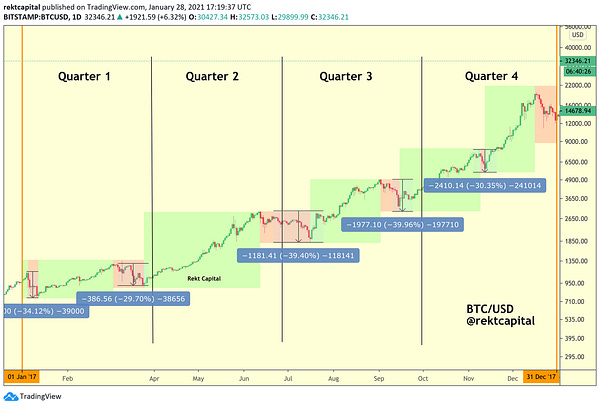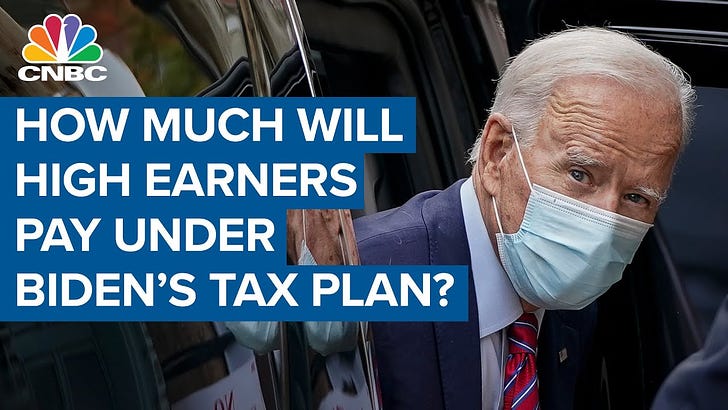I was texting with a friend about Biden’s capital gains tax proposal yesterday, and my friend wrote something to the effect of “We have to do something about economic inequality in the U.S.” at some point in the conversation. Upon hearing this, alarm bells went off in my mind. I was reminded immediately of what I learned from William Easterly’s masterpiece The White Man’s Burden: Why the West’s Efforts to Aid the Rest Have Done So Much Ill and So Little Good. In his book, Easterly, an economics professor at NYU and co-director of NYU’s Development Research Institute, quotes a New York Times piece in which Bob Geldof, Live 8 concert organizer, states, “Something must be done; anything must be done, whether it works or not” in regard to poverty in Africa. Easterly then proceeds throughout the book to explain why this approach is not only ineffective, but that it actually exacerbates the issue it was originally intended to solve. (For more on how the interventionist mindset does more harm than good - particularly as it often inflates bureaucracy instead of helping those in need - read The Road to Hell, by Michael Maren).
Easterly breaks those who want to “help” into two groups: Planners and Searchers. He argues that Planners take a top down approach and raise expectations amongst people, yet take no responsibility for meeting those expectations, while Searchers take a bottom up approach and accept responsibility for their actions; they make sure that the customer is satisfied. Now, before proceeding to discuss Biden’s tax plan, it needs to be acknowledged that sometimes a Planner, or someone who takes a top down approach, is needed. Biden has done an excellent job in distributing the COVID-19 vaccine. We needed a planner for this, and he has gotten the job done. (Now, if he could only fix the public information campaign around the vaccine rollout - like stop telling people they should still be social distancing and wear masks even after they’ve been fully vaccinated - he could stop adding fuel to the anti-vaxxer argument.) However, do we need a Planner to “fix” economic inequality in the U.S. when it has been Planners that have exacerbated this inequality, especially over the course of the past year?
Easterly argues that “Planners even escalate the scope of intervention when the previous intervention fails. They fail to search for what does work to help the poor.” He continues, “The poor are their own best Searchers.” Considering this premise, let’s keep in mind that the Planners - the Fed in conjunction with the U.S. government - have printed over 35% of all U.S. dollars in circulation in the last fourteen months. And where have these trillions and trillions of dollars gone? Well, American billionaires have absorbed more than $1 trillion of it since the pandemic began. That doesn’t seem too good for the poor. Groups like minorities, women, and low earners have reported falling behind more so than prior to the COVID-19 pandemic. How could this be? Well, we know, thanks to the Cantillon Effect, that those institutions closest to the money printers (the Fed) tend to benefit most from the printing of new money. We know that government officials, employees and other bureaucrats haven’t missed a paycheck. And we know that even if we had just taken a moderate percentage of these trillions and trillions of newly printed dollars and given them directly to the most vulnerable, we could have offset the widening economic inequality gap. Or better yet, we could have used this opportunity to close that gap. But we didn’t. And so I pose the following question: Will a capital gains tax close the economic inequality gap in the U.S.?
I have yet to do the math, but it would be hard for me to imagine that a capital gains tax increase would produce even a small fraction of the money that we just printed, and we know that that money only made economic inequality worse. So, is this tax increase simply meant subtract money from the balance sheets of the wealthy as a means to close the gap? Is that money supposed to flow into the hands of the most vulnerable, or is that not even the point? I am asking such questions “out loud” because I am genuinely trying to figure it out. (Feel free to leave your thoughts in the comments.)
Let’s say this tax brings in $500 billion in revenue. Let’s say that government bureaucracy absorbs none of it (LOL) and $250 billion goes directly into the hands of the most needy and $250 billion goes to pay down our national debt. The first part is sensical, as it would not only help those in need, but that money would get cycled back into the real economy (AKA not the stock market). Seems like a win win. The second part seems silly because what is the difference between the U.S. being $28 trillion in debt and $27.75 trillion in debt? Since we have economists like Paul Krugman arguing that we’re making a bigger deal about debt than we should, why not just have the Fed print the $500 billion that this tax increase might bring in?
I guess what I am trying to say is, “What does Biden intend to accomplish this tax increase?” In other words, “What’s the plan?” If there is a solid plan for the money, I’m all ears, and I’m likely on board. I voted for Biden knowing that something like this was likely coming down the pipeline, and I feel it takes more courage and decency to propose higher taxes on the ultra rich as a means of generating revenue than it does to take the sneaky way out, like Trump did, as he just used the Federal Reserve as an ATM - further debasing the U.S. dollar and further burying the U.S. in debt with each dollar printed. The only problem is that Biden is taking the “Fed ATM approach”, too. Granted, he inherited a nightmare of a situation, but money printing + higher taxation isn’t such a good look. I don’t know how that will sit with the centrists who voted for him. That being said, I’ll still take this over almost any of Trump’s antics, as 1.) I think the tax increase proposal is more of a pose than a real proposal; it seems like a symbolic offering to the progressives in the Democratic party, and it will likely be watered down before it passes, 2.) There’s a good chance centrist Democrats will vote against it, and 3.) I’m not rich, and this doesn’t change my station in life all that drastically.
I appreciated what a few rational-minded, though seemingly fairly well off people on Twitter had to say about the proposed tax increase.


Though, I still found the following Tweets interesting.

Toward the end of the text “conversation” with my friend, he shared with me an Op-Ed that Warren Buffett wrote for The New York Times back in 2011 entitled “Stop Coddling the Super-Rich”. I’d read it when it was originally published, but I took the opportunity to re-read it. In the piece, Buffett outlines how his employees pay a higher marginal tax rate on their wages than he does on his capital gains, his primary source of income. He points out that tax rates for the rich were higher in the 1980s and 1990s than they are now, and yet, American companies still flourished and the economy still roared. It’s a highly logical piece that very successfully spells out why the super-rich in America should be taxed at a higher rate - and it is written by one of the richest Americans/people that ever lived, which only adds to its credibility.
So, in a way, I in part agree that “We have to do something.” Ideally, though, I would change “have” to “had”. We should have gotten those freshly printed dollars into the hands of the people who needed them most. That would have been a good plan. Odd that the self-proclaimed “very stable genius” who was running the country - the man of the people - missed that. What Biden is doing now is a form of damage control. He seems to be trying to re-balance the equation. Will it work? Will it even make a dent in the America’s economic inequality problem? I don’t know. We shall see if this type of intervention, this plan, starts to turn the tide in the wake of the previous interventions having only heightened the problem at hand.
Zoom Out
Yes, I know, Bitcoin “crashed”. And it may go even lower. My suggestion: Zoom out. Don’t get wrapped up in the emotions that come with following its every move. Keep in mind the following:


And if you want a better idea of the data analytics that show where its price is likely headed, listen to the following conversation:
And that’s all for today, folks! Enjoy your weekend!
Best,
Frank
Twitter: @frankcorva




